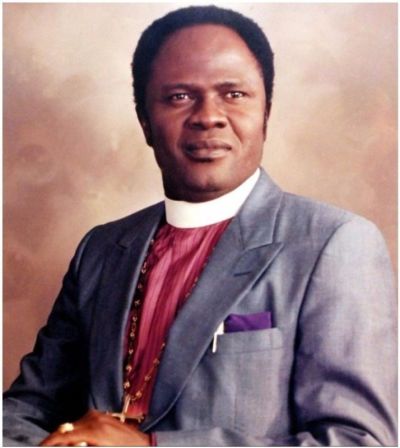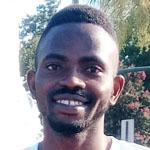
“He raises the poor from the dust and lifts the needy from the ash heap; he seats them with princes and has them inherit a throne of honor. “For the foundations of the earth are the LORD’s; on them he has set the world.” (1 Samuel Chapter 2 verse 8)
Archbishop Benson Idahosa was not just a man that knew the Bible. He manifested the reality of the word of God. He is known widely as the father of Pentecostalism in Nigeria and West Africa.
This great apostle was born on the 11th of September 1998 in Benin City. His parents were very poor, and they were not Christians. As a baby, he was very frail and sickly; as a result, his father instructed his mother to dispose him on a rubbish heap. It is said that he fainted often, so his father thought it was no use keeping him as he was bound to die. Moments after the mother disposed him, the little Benson began to cry, so the mother decided to rescue him and head for her father’s house because she received strict instructions from her husband not to bring the child back into the house. Because Benson Idahosa’s family was very poor, he didn’t go to school until he was about 14 years old.
The call
As a youth, the young Benson was converted on a football field one Sunday afternoon by a young man named, Pastor Okpo. He became a very zealous follower of Christ as he followed the teachings of Pastor Okpo. He received his call to ministry in a night vision when he heard the voice of God saying, “I have called you that you might take the gospel around the world in my name, preach the gospel, and I will confirm my word with signs following.” The young Benson accepted the call and with Holy Spirit zeal began to preach from village to village. One phenomenal characteristic of Benson Idahosa was his child-like faith, and this was what birthed the countless miracles and healings that happened in his ministry.
From Benin City to the ends of the earth
“Therefore, go and make disciples of all nations, baptizing them in the name of the Father and of the Son and of the Holy Spirit” (Mathew chapter 28 verse 19)
As a young man, he once heard his pastor preach from the scriptures that Christians could raise the dead. Benson Idahosa believed this with all his heart and so he quickly jumped on his bicycle and began to search for dead people all over the city of Benin. After about 5 hours, he found a house where a girl had died some hours before. The corpse had been cleaned and prepared for burial. Benson Idahosa walked up to the father of the child and said, “the God whom I serve can bring your baby back to life.” After a brief discussion, the father agreed. With great enthusiasm, Benson Idahosa walked up to the child and with great faith in God called the child’s name and proclaimed, “Arise in the name of the Lord Jesus Christ!” The child sneezed and came back to life. Hallelujah!
If we have faith in God, we will see the dead raised, the sick healed, the leper cleansed, and souls saved. The same spirit that raised Christ from the dead, the same God that healed the cripple at the Beautiful Gate dwells within us. If only we could believe.
Benson Idahosa later planted a church at a store in Benin City. His passion for souls never waned. He moved from place-to-place healing the sick, raising the dead and winning souls for Christ. It is very important to note that Archbishop Benson Idahosa rose in a time when witchcraft was rampant in Benin City. He destroyed many demonic altars and led many idol worshippers to Christ. He was indeed a man of great faith.
Idahosa later met Pa Sydney Elton who later became his mentor. Pa Elton introduced him to Gordon and Freda Lindsey. Both Elton and Lindsey ordained Idahosa to ministry in 1971. Idahosa was later granted a scholarship to study at Gordon Lindsey’s Bible school, Christ for the Nations Bible Institute in Texas, United States.
Idahosa was admitted into the Diploma in Divinity program, but he didn’t complete the program as he asked for permission to return to Nigeria for the burden for souls that was upon him was heavy. He returned to Nigeria and started holding massive crusades. The first one was at the Ogbe stadium in Benin which attracted over 10,000 people. The massive crusades were followed by church planting all over the nation of Nigeria. It was Archbishop Benson Idahosa who pioneered massive church planting in Nigeria.
Legacy
Archbishop Benson Idahosa was known for his bold faith-filled confrontational Christianity. He was a fearless general who could speak boldly even against the military government of his day. He was known for many notable quotes including “my God is not a poor God”, “your attitude determines your altitude”, “it is more risky, not to take a risk”, “I am a possibilitarian”, “A big head without a big brain is a big load to the neck”, “If your faith says yes, God cannot say no.” He healed several blind people, raised over 20 individuals from the dead, won millions of souls to Christ and planted many churches.
Most of the Pentecostal/charismatic church fathers in West Africa today such as Bishop David Oyedepo, Archbishop Duncan Williams, Apostle Johnson Suleman, Bishop Paul Nya, Pastor Chris Oyakhilome, Fred Addo were all protégés of Archbishop Benson Idahosa. He took the gospel to 145 nations in his lifetime. He established the All Nations for Christ Bible School, Word of Faith Group of Schools and Benson Idahosa University. The little child who was left to die on a heap of rubbish took the gospel to the ends of the earth, made disciples, fed the needy, raised the dead and did other great things. Indeed, God raises men from the dunghills and sets them among princes. This great Apostle stands as a witness that if we have faith, nothing is impossible.

Rume Kpadamrophe is a graduate student at the University of South Carolina. Before leaving Nigeria, he mentored several youths in prophetic, intercession, and evangelism. He is a revivalist, a writer, a researcher, and an enthusiastic lover of revival history. He desires to see revival ignited and sustained in the nations of the earth. He currently serves as the president of The Carolina Church, a campus ministry at the University of South Carolina.Rume’s email is [email protected].